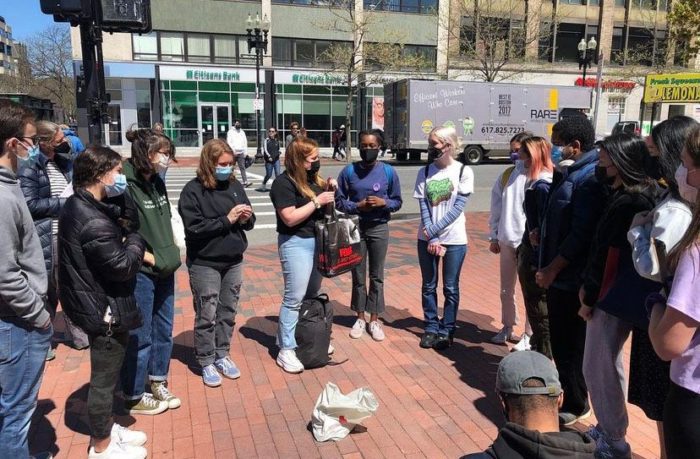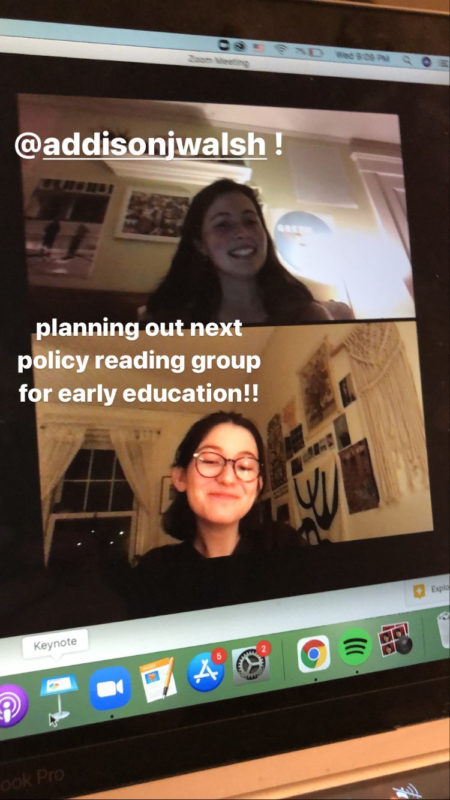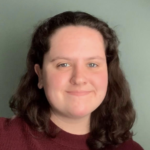
“We feel that her policies represent us, but we’re ready to speak our mind if we feel that she needs to change.”
Inspired by class discussions and formative election cycles, Boston’s youth organizers will spend their summer canvassing, phone banking, and tweeting for the candidate they hope will be the next mayor of Boston.
Addison Walsh and Zoe Vittori-Koch are high school students and facilitators of Youth4Wu, a group of young people organizing around Boston City Councilor Michelle Wu for mayor. They were drawn to Wu’s progressive agenda, including her proposal for a Boston Green New Deal.
“Climate is an issue that gets everybody fired up, especially people of our generation… this is an issue we’ll be fighting ourselves for years and years to come,” Walsh said.
They also highlighted Wu’s willingness to listen to youth voices and her support of the issues most important to Generation Z.
As Youth4Wu facilitators, Walsh and Vittori-Koch coordinate with Wu staff to plan events aimed at young people, but the group is unaffiliated with the campaign. They’re not the kind of traditional campaign vols who show up to stuff envelopes and fetch coffee for senior advisors. Instead, they’re independent, autonomous.
“Youth need their own space to get together and share ideas… we don’t necessarily want to be part of the campaign machine,” Walsh said.
They may be hesitant to be tied down, but many Youth4Wu members are not strangers to campaigning. Some are veterans of Students4Markey, the similarly-named group that helped deliver on Sen. Ed Markey’s reelection last year. Following the primary, young progressives targeted their energy locally.
“We were looking for another place to divert our attention, and I think Michelle Wu’s campaign really stood out… she was clearly the progressive candidate,” said Anjali Agarwal, a Youth4Wu member.
Since Markey’s win, his supporters have not shied away from voicing their disapproval online, specifically regarding his position on Israel and Palestine, and they say they will hold Wu to the same standard.
Vittori-Koch said Markey’s positions have led to conversations about holding politicians accountable, not idolizing them.
“You have to be ready for disappointment,” she said. “We’re supporting Michelle because we like her as a candidate, we feel that her policies represent us, but we’re ready to speak our mind if we feel that she needs to change.”
Though she is leading in the polls among young people and Youth4Wu supporters are vocal and organized online, Wu is not the only choice for Gen Z. Salma Murphy, a rising senior at Boston Latin Academy, is a volunteer for Councilor Andrea Campbell, drawn to the campaign by Campbell’s lived experience.
“There’s a difference between knowing about inequities and feeling the inequity… that’s why I’m so moved by her being a woman of color from Boston and seeing a lot of myself in her,” Murphy said. Adding, “It’s so important for people like me and people like those around me to get involved with policymaking.”

Murphy was drawn to politics through her AP United States History class last year. She founded Girls Give Back, an organization that connects young women worldwide through leadership and service projects, and met with politicians through the Mayor’s Youth Council. This summer, she’ll be canvassing and phone banking for Campbell along with other volunteers.
“Although we’re so different, we stand on a common ground of wanting to create change,” Murphy said.
While young people typically engage with campaigns on a volunteer level, some hold positions as staff members. Lia Kornmehl, a student at Bowdoin College, is the director of digital content and scheduling for state Rep. Jon Santiago. She plans the campaign’s social media content and attends events with Santiago to capture photos and video.
“Working behind the camera is interesting because you see how he’s having conversations, but then you also see the broader picture of how many people he’s talking to,” Kornmehl said.
“It’s been a really great experience for me to see the diversity of Boston, not only in race or class, but also in opinion, also in perspective.”
Patrick Sheridan Rossi, a political consultant hired by the Santiago campaign, said Kornmehl is “one of the best” campaign staffers he’s worked with and has changed the way he thinks about using a young person’s skill set on campaigns.
Maya Fonkeu and Ben Tayag are field organizers for John Barros, responsible for gathering and building relationships with campaign volunteers.
“I got into organizing as soon as I was able to walk and talk,” Fonkeu said. Her mother was actively involved in the community and took her along to events.
Fonkeu was drawn to Barros, who also started organizing as a teenager, for his plans to close the racial wealth gap and address the lack of affordable housing in Boston. For Tayag, the Barros campaign was the answer to his concerns about equitable education and climate change.
“We’re really the ears on the ground,” he said.
As field organizers, Fonkeu and Tayag listen to community members and relay their needs back to the campaign.
Regardless of their candidate, young organizers are acutely aware of the power of social media.
“We use it to create, to amplify, and provide as many people with as much information as possible,” Kornmehl said.
She tries to replicate Santiago’s on-the-ground conversations with a wider audience by creating multilingual social media content.
Walsh thinks that Students4Markey proved the importance of social media and youth voices to smaller, local campaigns. She also hopes that Zoom becomes a mainstay after the pandemic. Virtual events made campaigns accessible to young people and others who would not otherwise get involved.
“A lot of the reason digital was big over the summer was because you couldn’t go out, but now there will be more opportunities to do things like canvassing and in-person events,” Vittori-Koch said.
“It’s definitely a reality for us too that we are all mostly high schoolers… people have homework to do, so we don’t want to completely dominate people with all the events,” Walsh noted.
With fewer than three months until the race’s preliminary election, youth organizers are ready for their voices to be heard, and they know campaigns are listening.
“They’re realizing that we’re valuable and we have a lot of power in the spaces we’ve created,” Vittori-Koch said.
Catherine Hurley is studying history and journalism at the University of Massachusetts Amherst

